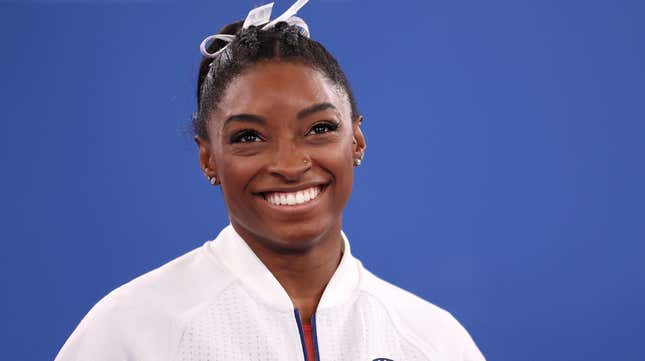
Time Magazine has blown out Sports Illustrated in ranking its athlete of the year by a score of 45-10. Sports Illustrated decided to go with Tampa Bay Buccaneers quarterback Tom Brady as its “Sportsperson of the Year.’ It’s easy to see how they made that choice. He’s 44 years old, and still playing in the NFL — professional tackle football — at a very high level. Brady began 2021 by winning a Super Bowl in his first year with the only NFL team he’s ever played for besides the New England Patriots. It’s a one-of-a-kind performance that does deserve recognition and admiration.
Simone Biles though, she’s something different. At 24 years old, she, too, is at an age past prime competition years in her sport. No one would have faulted her for deciding to pass on the 2021 Tokyo Olympics, but she felt an obligation to go. Unlike Brady, she did not win the ultimate prize, nor did the 2021 United States Women’s Gymnastics Team. However, what Biles taught us is something usually thought to be atypical of the top athletes in the world. She taught us that we need to be okay with people not being okay.
The average age of Olympic gymnasts has increased in recent years. At the Tokyo Games, it was just under 22 years old, but when Biles dominated the world at the 2016 Rio games she was 19 years old. The average age of women’s All-Around champions in the 11 Olympics prior to the Tokyo games was 16.7. Still, she felt an obligation to compete in Tokyo, as the only survivor of former team doctor Larry Nassar’s sexual abuse still on the U.S. team.
“I should have quit way before Tokyo, when Larry Nassar was in the media for two years,” Biles said to New York Magazine’s Camonghne Felix. “It was too much. But I was not going to let him take something I’ve worked for since I was 6 years old. I wasn’t going to let him take that joy away from me. So I pushed past that for as long as my mind and my body would let me.”
The Indianapolis Star broke the story about Nassar’s rampant sexual abuse in 2016, 22 days after the conclusion of the Rio games. In January of 2018, Nassar was sentenced to 40 to 175 years in prison after more than 150 accusations were made in court. In a judicial system where it is hard to convict for sexual abuse, it’s good that, for once in this situation, the system worked — but the trauma doesn’t instantly leave the survivors with the bang of a gavel. Their humanity was violated. That’s something a prison sentence for their abuse can help with but, in no way can fix it.
With all that weighing on Biles, she still had the courage to get on that plane in the middle of a worldwide pandemic to compete in an Olympics that was void of a true Olympic experience that included families not being allowed to attend. Then once she started competing it all came tumbling down. She wasn’t performing up to her usual standards, and during the team vault competition she landed so poorly, the commentator said, “It looked like she got... almost lost in the air.”
That’s exactly what happened. Biles said to the media that she was suffering from twisties and pulled herself out of the team competition and the Individual All-Around. The decision was met with both effusive praise and condemnation but she owned it. She would later in the games return to competition and win a bronze medal in the balance beam. One month later she was in front of the United States Congress, giving a statement about her experience suffering sexual abuse and urging the government to do everything in its power to prevent this abuse from happening to children in the future.
Biles may not have finished the year with the glory and hardware that Brady did, but she still gave a far greater championship performance in front of the entire world. Biles showed what it’s like to show strength through vulnerability.
She had to be honest with herself that the last five years were weighing on her. As badly as she wanted to show the world that Nassar’s crimes against her would not stop her, Biles was forced to deal with the fact that she needed to heal more from what happened and she had to admit that to the world.
That’s what it is to be a competitor. Biles may not have been ready to win a gold medal, but she owned it and didn’t let any outside pressure force her to do something that would put her health and well-being at risk — that wasn’t going to happen anymore.
By putting her well-being first, she taught us all a lesson in taking back control of your body and that even the mightiest among us sometimes need to sit down when our heads are not in the right space. For this great example that she set, Time Magazine wins, in blowout fashion, with its athlete of the year choice.